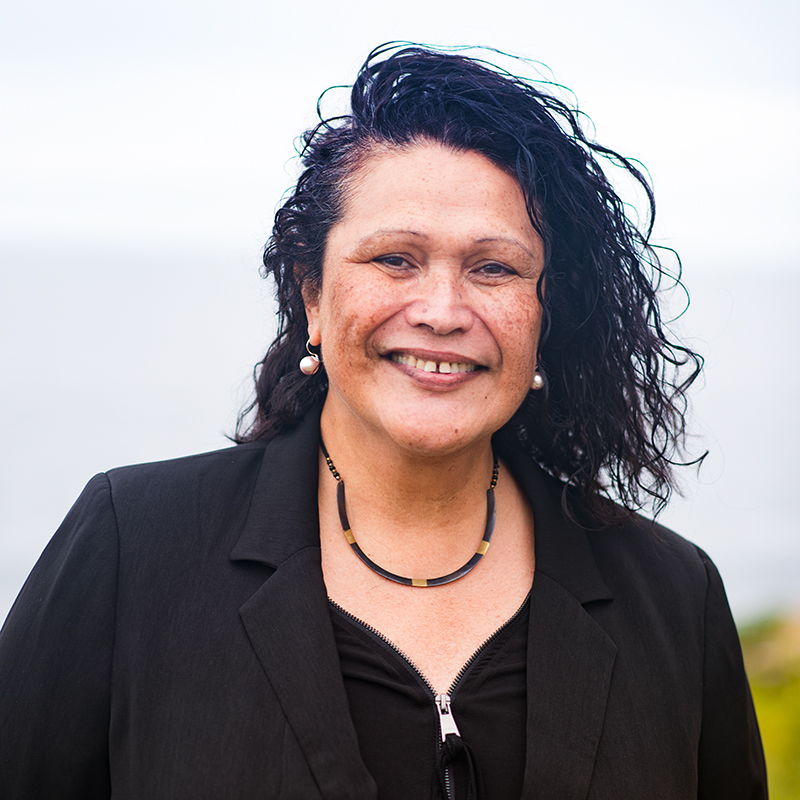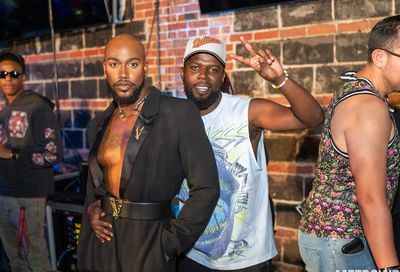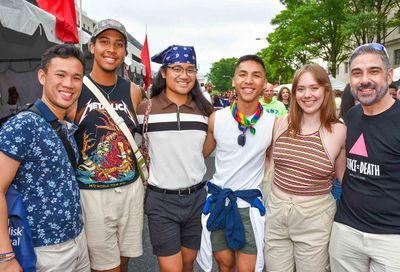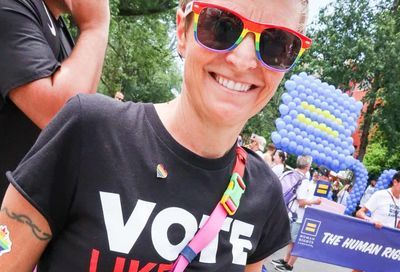Chicago trans woman wins lawsuit to allow strippers to perform topless
Bea Sullivan-Knoff sued the city, arguing that its policy prohibiting women from performing topless was discriminatory

Women could soon be allowed to perform topless in Chicago strip clubs selling liquor after the city settled a lawsuit from a transgender performer who wanted to perform without “pasties” covering her nipples.
Bea Sullivan-Knoff filed a federal lawsuit in 2016 arguing that the city’s policy preventing women from performing topless was discriminatory.
Sullivan-Knoff argued that the policy was unconstitutional, and reinforced “archaic stereotypes” about the “impropriety of women’s breasts” by prohibiting only female entertainers from exposing their breasts in establishments that sell liquor.
On Thursday, Sullivan-Knoff held a news conference at Chicago City Hall to announce that Mayor Lori Lightfoot’s administration had agreed to settle the lawsuit and remove all references to gender from the statutes concerning how much skin entertainers may show when performing in nightclubs.
“I am grateful that women, and trans, nonbinary, and intersex folks, now have the option to express their bodies more freely in this city,” Sullivan-Knoff said.
The settlement language will be introduced to the City Council, who will have final approval over its wording, in January, according to the Chicago Tribune.
But some Chicago aldermen are outraged at the settlement, arguing that its implications will lead to the “exploitation of women” and potentially even human trafficking.
“This is exploitation — pure and simple,” Ald. Matt O’Shea (19th Ward), who represents a socially conservative, working-class ward on the city’s Southwest Side, said. “The exploitation of women. The kind of ugly behavior that comes with that. We’ve seen it. I wouldn’t want that in my community. I wouldn’t want my residents to have this near them. Frankly, it’s not who we are as a city and what we’re about.
“It leads to prostitution. It opens the door to human trafficking. Exploitation of women as a whole,” added O’Shea. “It’s disgusting. It really is. We have a fiduciary responsibility to protect taxpayers. I get that. But on a personal level, I have a real problem with this.”
Ethics Committee Chairman Michele Smith (43rd Ward), who represents the Lincoln Park neighborhood, expressed similar reservations.
“Strip clubs are the source of many issues surrounding human trafficking and exploitation of women,” Smith said, arguing that she wants the settlement language “thoroughly vetted” before it is approved.
Three years ago, O’Shea, Smith, and Ald. James Cappleman (46th Ward), representing the gentrifying Uptown neighborhood, were among a group of aldermen who nixed an ordinance proposed by License Committee Chairman Emma Mitts (37th Ward) that would have allowed dancers to perform topless and wear only a G-string at strip clubs that buy a two-year, $75,000 license, reports the Chicago Sun-Times.

But Cappleman attended Sullivan-Knoff’s press conference and was more sympathetic to her argument that the city’s current policy is unfair.
“I want to make sure that I remain open to women and having them have the same rights as men. And right now, men can go bare-chested and women cannot. I really believe women should have that right if they make that choice to do so,” Cappleman told the Sun-Times.
“As long as it’s in a situation where women do not feel exploited and it’s a women’s choice, I will honor that woman’s choice, including transgender women,” he added. “The sense that I got from [Sullivan-Knoff] was that she was not feeling exploited by allowing her to show her breasts. I felt comfortable with that.”
Sullivan-Knoff’s attorney, Brendan Shiller — who, incidentally, is the son of Cappleman’s predecessor, Ald. Helen Shiller — said the city had no choice but to change the law after having the courts rule against it, in order to avoid exposing itself to future lawsuits that would cost taxpayers’ money.
Shiller previously represented VIP’s, A Gentlemen’s Club, a Northwest Side strip club whose owner had fought with the city to allow strippers at the club to expose more skin, but Shiller claims he stopped representing the club before taking Sullivan-Knoff’s case.
He said the “potential side effect” of relaxing rules regarding topless performers was not an attempt to circumvent the strip club rules or do his previous client’s bidding.
“Could there be women bearing their breasts in liquor license establishments? If you go down to the corner bar and bare your breasts? Yes,” Shiller told the Sun-Times. “[But] women bare their breasts in liquor license establishments all the time — on Saint Patrick’s Day and on Gay Pride Day. I don’t know what to tell you.”
Read more:
Iowa man sentenced to 16 years in jail for burning LGBTQ Pride flag
Elizabeth Warren pledges to honor transgender victims, reinstate protections as president
Virginia’s incoming House Speaker promises to pass LGBTQ protections in 2020
Support Metro Weekly’s Journalism
These are challenging times for news organizations. And yet it’s crucial we stay active and provide vital resources and information to both our local readers and the world. So won’t you please take a moment and consider supporting Metro Weekly with a membership? For as little as $5 a month, you can help ensure Metro Weekly magazine and MetroWeekly.com remain free, viable resources as we provide the best, most diverse, culturally-resonant LGBTQ coverage in both the D.C. region and around the world. Memberships come with exclusive perks and discounts, your own personal digital delivery of each week’s magazine (and an archive), access to our Member's Lounge when it launches this fall, and exclusive members-only items like Metro Weekly Membership Mugs and Tote Bags! Check out all our membership levels here and please join us today!



































You must be logged in to post a comment.